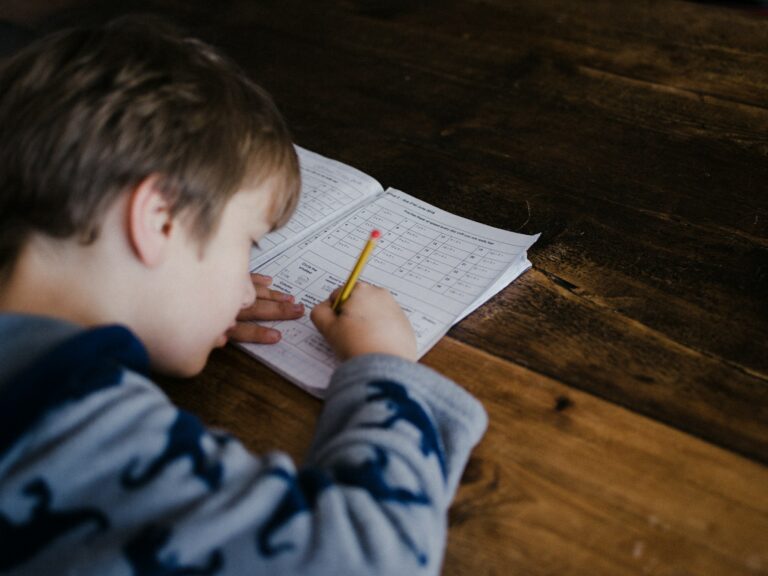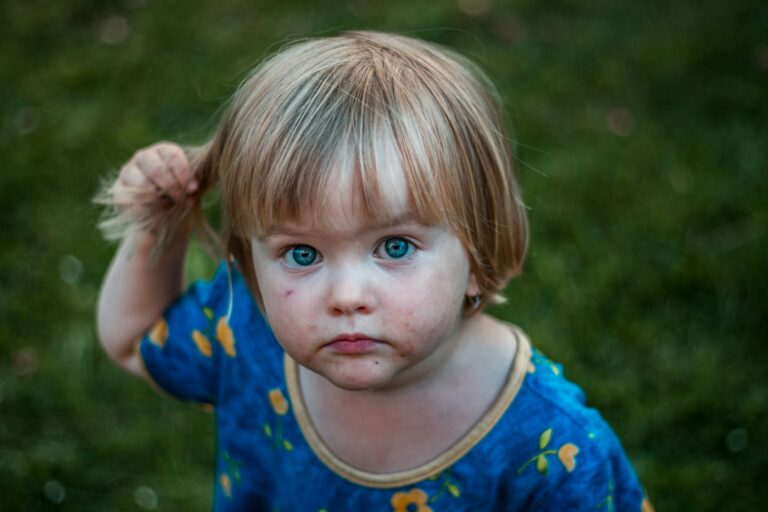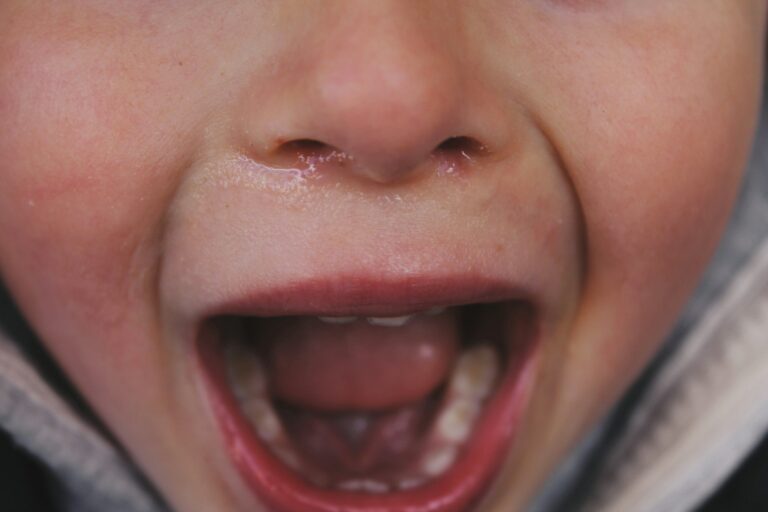The phrase gifted child can ignite a whirlwind of thoughts and sometimes worries for parents. Perhaps you’ve noticed your child racing through vocabulary like a miniature linguist, or pondering existential riddles while their peers are captivated by cartoons. Are you witnessing a budding prodigy or just a phase of accelerated curiosity? Many parents feel both pride and uncertainty when navigating such terrain. Is early reading a sign of genius, or merely eagerness? Could difficulty in social settings suggest a hidden strength, or a future challenge? The journey for families with a gifted child brims with both excitement and questions. This exploration brings into focus the key signs of giftedness, the patchwork of talents that may arise, practical ways to bolster both strengths and well-being, plus the role of medical and educational professionals in supporting growth. Above all, parents need actionable information—grounded in science and deep empathy—to make sense of what they’re observing and, most importantly, to help their gifted child thrive.
Spotting a gifted child: distinguishing traits and early signals
Quick flashes of insight, advanced reasoning, or an insatiable desire to understand why—these are some early signals that may set a gifted child apart. Medical and cognitive science underline that gifted children frequently show what specialists call asynchronous development: their intellectual age may far outpace their emotional or motor skills. You may witness a dazzling vocabulary unfold in a toddler, or an uncanny memory for details—think of a four-year-old reciting dinosaurs’ Latin names with ease, while still struggling to tie shoelaces.
There’s often an intense curiosity running parallel to high emotional reactivity. Emotional regulation can be a challenge, resulting in episodes of frustration or sadness that seem “bigger” than the norm for their age. The concept of intellectual overexcitability—where mental stimulation spurs intense questions and persistent focus—is well documented in both psychological research and educational resources. It’s common for gifted children to feel deep empathy and loyalty, reacting strongly to perceived unfairness or inconsistency.
Socially, a gifted child might gravitate toward older children or adults, finding it tricky to connect with age-matched peers. This doesn’t necessarily signal maladjustment but can certainly make playground dynamics complicated. Perfectionism and aversion to rote tasks further highlight how their approach diverges from typical classroom expectations.
Unraveling the tapestry: different types of giftedness
“Gifted child” is not a narrow label. Scientific literature and educational practice recognize several patterns, each with its own trajectory and support requirements:
- Intellectual giftedness: Rapid acquisition of academic content, mastery in reasoning, and advanced logical skills.
- Creative giftedness: Bursts of originality, rich imagination, and unorthodox solutions—think in pictures, music, storytelling.
- Leadership giftedness: Mature insight into social dynamics, the ability to motivate, persuasion rooted in empathy.
- Psychomotor giftedness: Exceptional coordination, speed, and physical intuition, observable in sports or dance.
- Musical giftedness: Sensitivity to pitch, rhythm, and the ability to create or replicate complex musical patterns.
A single child may straddle multiple categories, for instance blending artistic talent with mathematical prowess, or displaying technological ingenuity alongside philosophical questioning. Professional organizations such as the National Association for Gifted Children emphasize the need for a holistic perspective—academic tests alone may miss many dazzling aspects of a gifted child’s strengths.
How is a gifted child identified? Medical and educational approaches
Many parents recognize a gifted child through daily marvels, but formal identification weaves together input from several threads. Clinical psychology highlights the value of standardized cognitive assessments—like the WISC V (Wechsler Intelligence Scale for Children, version 5)—which can objectively estimate a child’s cognitive abilities. Physicians and educational psychologists suggest using these tools from around age 8 for the most reliable results, though exceptions exist.
Observation at home and in educational settings is paramount. Parents may note early language milestones, profound interests in technical subjects, or a distinctive sense of justice and reasoning. Teachers can provide crucial insights, as they witness the child interact with peers, tackle academic tasks, and express curiosity (or boredom).
Multiple sources underline: intellectual ability is not always neatly aligned with academic success. Some gifted children resist memorizing without understanding, preferring to explore subjects in depth, or drawing unexpected connections rather than parroting facts. Differentiating between giftedness and neurodevelopmental differences—such as ADHD, autism spectrum conditions, or learning disabilities (dyslexia, dyscalculia)—often requires comprehensive evaluation by multidisciplinary teams.
Portfolios of creative work, teacher checklists, and nonverbal assessments (for children from diverse linguistic or cultural backgrounds) also play a vital role. Medical and educational communities alike recommend avoiding reliance on a single metric.
The emotional landscape: common challenges for the gifted child
Sometimes the very strengths of a gifted child sow the seeds for future struggles. Scientific and psychological sources reveal that heightened sensitivity often walks hand-in-hand with giftedness: a whispered criticism, a perceived failure, or social exclusion can feel overwhelming. These children may develop perfectionistic tendencies, striving for flawless performance and experiencing disproportionate disappointment when they fall short of their own expectations.
In traditional classrooms, boredom is a recurring complaint. If the curriculum is not adapted, rapid learners may “switch off” or appear inattentive—sometimes mistaken for behavioral issues. Social relationships can be fraught as well; age-matched peers may find advanced interests inaccessible, leading to isolation or even bullying.
A special note: when giftedness coexists with learning differences or neurodivergence (what professionals call “twice-exceptionality”), both strengths and struggles become even more pronounced. For instance, a mathematically talented child with dyslexia might excel in problem-solving but feel demoralized by reading tasks. Without recognition and support, emotional issues such as anxiety or lowered self-esteem may emerge, sometimes misinterpreted as intentional defiance.
Supporting your gifted child: strategies for home and school
Empathy, open-mindedness, and flexible routines are the pillars recommended by pediatric and educational experts. Parents are encouraged to cultivate an environment rich in stimulation—books, puzzles, scientific kits, art supplies. Most importantly, give space for deep dives into preferred topics; genuine learning often occurs at the intersection of curiosity and self-directed exploration.
Conversations matter. Bring attention to what makes a gifted child’s brain function differently, using simple biological explanations—like how neural pathways may form more rapidly, resulting in quick information processing but also emotional intensity. Normalize setbacks, highlight effort over innate ability, and transform mistakes into chances for growth.
Collaboration with teachers is essential. Request individualized learning plans, advocate for accelerated content if appropriate, or additional support where needed. Social growth can benefit from extracurricular activities, specialized workshops, or peer groups where gifted children with similar interests connect and form friendships in a supportive setting.
For challenges related to emotional regulation or peer relationships, mental health professionals can offer valuable support—cognitive behavioral therapies, psychoeducation for the family, or even group interventions. Modern research underscores the value of preventive support over reactive measures, aiming for thriving rather than mere coping.
Tailoring education: maximizing the potential of the gifted child
Picture a child who learns multiplication in kindergarten, or one who crafts a science fiction short story before their seventh birthday. These advanced learning rhythms often require what educators term curricular enrichment—additional projects, deeper exploration, or even classroom acceleration (i.e., grade-skipping for those ready to handle older peers).
Another medical-educational approach is differentiated instruction: lessons designed to match each student’s unique pace and readiness level. Scientific evidence shows this not only boosts engagement but can also protect against boredom-induced behavioral issues.
Twice-exceptional children, who juggle both elevated abilities and learning challenges, particularly benefit from multi-modal learning plans: supporting both strengths and difficulties in close collaboration among teachers, families, and healthcare professionals. For example, assistive technology, reading accommodations, or specialized therapies can be combined with enrichment to help a gifted child realize their full potential.
Social and emotional development: supporting healthy relationships
Friendship for a gifted child is often a complex subject. They might prefer the company of adults or older children, finding age peers uninterested in their favorite subjects or perplexed by their intensity. Research into child development suggests proactive support can ease these social complexities: structured interest clubs, science camps, or arts workshops may offer safe havens where similarities become a source of connection, not isolation.
Role-playing scenarios at home, discussing emotions openly, and practicing assertiveness skills prepare a gifted child to handle tricky peer dynamics. It’s also wise to keep an eye out for psychosomatic symptoms—headaches, stomachaches, or reluctance to attend school can sometimes mask deeper social anxieties or bullying experiences.
Equally, teaching resilience and boundary-setting, alongside a dose of practical conflict resolution, can empower a gifted child to flourish socially while remaining true to their own identity.
Giftedness and diversity: the importance of context and equity
Global research calls attention to how varying cultural attitudes shape what is recognized as a “gifted child.” Some systems prize rapid academic progress, others look for creativity, perseverance, or leadership. Importantly, standardized tests—often used in the identification process—may disadvantage children from underrepresented communities or those for whom English (or the local language) is not a first language.
Medical and educational professionals advocate for a blend of subjective and objective tools: nonverbal intelligence tests, creative portfolios, classroom observations, and teacher-parent checklists all contribute to a fuller understanding. Universal screening and educator training are encouraged as steps toward reducing bias, ensuring every gifted child—regardless of origin—has a fair chance to access flexible, challenging educational environments.
Multicultural content and inclusive classroom routines can anchor a sense of belonging, which in turn fosters growth for gifted children who may already be feeling “different.”
Parenting a gifted child: finding balance and building confidence
Parenting a gifted child may feel like running a marathon at a sprint’s pace: exhilarating, sometimes exhausting, and filled with unexpected turns. Regular check-ins with teachers, child psychologists, and medical professionals can offer direction and reassurance, especially if challenges arise around academic progress or emotional well-being.
Promoting a growth mindset—the belief that abilities can be developed through dedication and effort—can empower your gifted child to confront both mountains and molehills with resilience. Praise process over product, encourage healthy risk-taking, and reframe perfectionism as a vestige of their sensitive wiring rather than a character flaw.
And don’t forget your own well-being. Knowledgeable, calm caregivers serve as steady anchors. Tapping into support groups, specialized resources, or simply setting aside time for family fun can make all the difference.
Key takeaways
- A gifted child is defined by advanced ability or talent, often spanning numerous areas—from academic prowess to creative, musical, or leadership skills.
- Early patterns can include asynchronous development, strong empathy, and a preference for deep exploration, as well as challenges such as sensitivity or perfectionism.
- Holistic assessment—pairing cognitive testing with observation and creative portfolios—offers a more accurate picture than any single metric.
- Emotional and social support matters just as much as intellectual stimulation, especially for twice-exceptional children or those who experience social isolation.
- Tailored educational experiences—enrichment, acceleration, or differentiated instruction—can keep learning motivating and meaningful.
- Culturally sensitive identification reduces bias and supports equitable access to advanced programs for every gifted child.
- Professional guidance is invaluable for parents navigating uncertainties. Practical tools, regular dialogue, and self-care form a foundation for confidence.
- For more customized advice and free health questionnaires tailored to your child’s needs, consider downloading the Heloa application, a valuable resource developed for families seeking science-backed support.
Questions Parents Ask
Can a gifted child have learning disabilities?
Absolutely. Some gifted children may also face learning difficulties, which specialists often call “twice-exceptional.” This means a child can have remarkable abilities in certain areas and, at the same time, encounter challenges like dyslexia, ADHD, or other learning differences. Their talents can sometimes mask these difficulties, or conversely, their struggles may overshadow their strengths. Recognizing both aspects is essential to give them the support they need. Collaborating with teachers, specialists, and using personalized approaches often helps these children thrive in all aspects of their development.
What is “gifted child syndrome”?
“Gifted child syndrome” is a phrase some people use to describe the unique set of emotional, social, or behavioral experiences that may arise in gifted children. It isn’t a medical diagnosis, but it highlights common feelings like perfectionism, sensitivity to criticism, or frustration if tasks don’t feel meaningful enough. Gifted children may sometimes feel isolated or misunderstood, especially if their interests or thoughts are very different from their peers. Rassurez-vous: these feelings are not uncommon, and with understanding and kind support, most children can develop resilience, confidence, and strong self-esteem. The involvement of caring adults, both at home and at school, makes a real difference.









